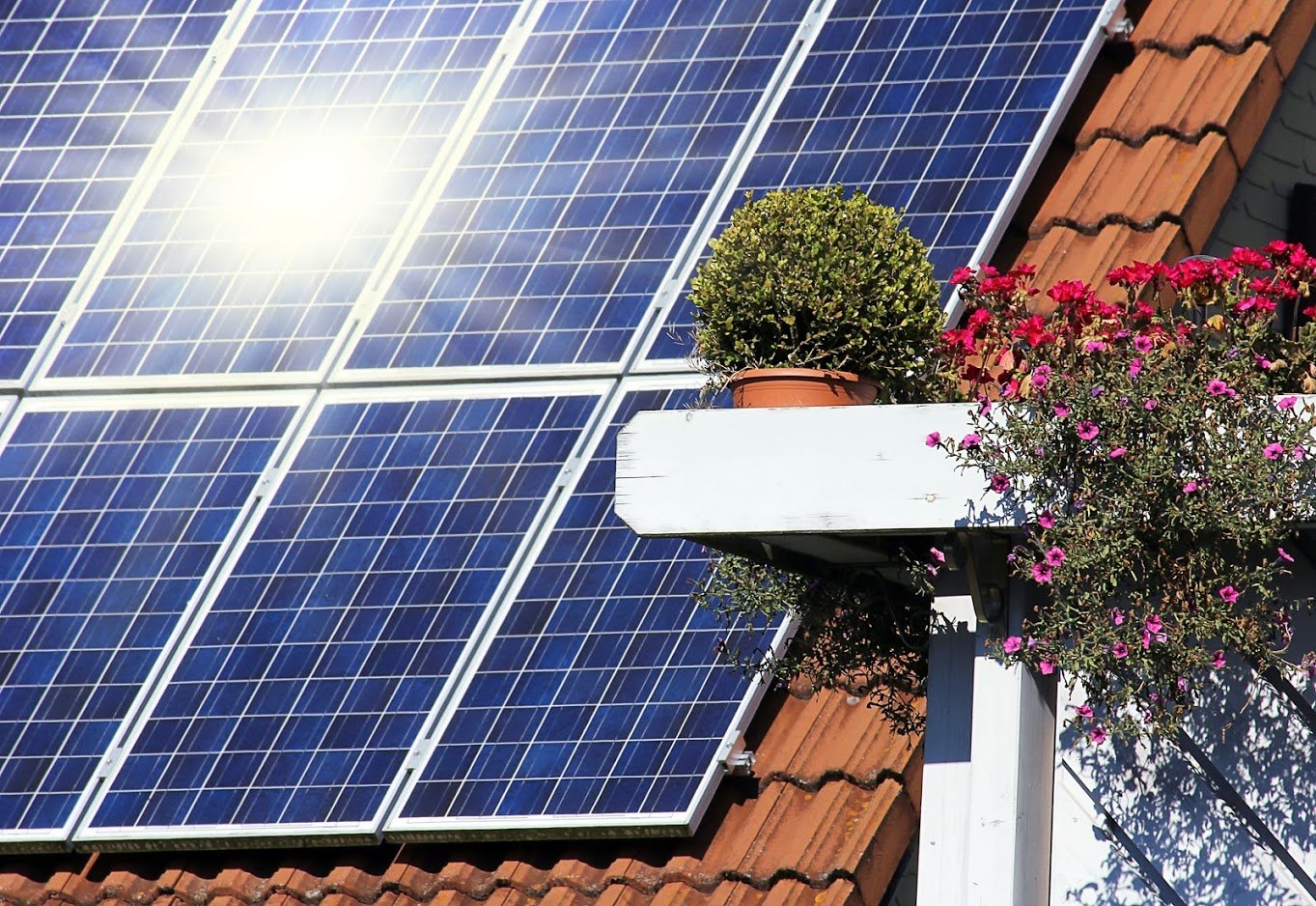If you're looking for ways to cut your home's energy costs, solar power is a clean, abundant, and renewable energy resource to consider.
While solar energy from the sun is free, installing a solar energy system can be a costly investment. But with the growing financing options, tax benefits, and reduced cost to install residential solar systems, more people are looking to the sun to power their home's energy needs.

How a Home Solar Energy System Works
Solar energy is produced by converting sunlight into electricity by way of panels that absorb the sun's rays.
Solar Cells
Solar power is generated through PV (photovoltaic) cells, either in panels or in shingles or slates installed on your home's roof. The number of panels you need depends on the size of the system you install and how much electricity you want to generate.
Depending on how much sun is available to PV panels on the roof, the size of the system you need varies. The size you choose then determines the number of panels you need to generate enough electricity to supply your home's energy needs.
Sunlight
To get the most benefit from solar energy, your home needs to get enough sunlight. That means it needs to be situated so that the shade from trees or surrounding building structures doesn't stop sunlight from reaching your roof. You can also maximize sun exposure by installing the panels on the part of your roof that faces south.
What a Solar System Costs to Install
While the price of solar panels has dropped more than 60 percent in recent years, the soft costs associated with residential solar energy systems still account for up to 64 percent of the total cost. Soft costs include sales tax, permit and inspection fees, financing, the cost of labor to install the system, and payment to suppliers.
Solar panel system prices vary depending on the state in which you live and the size of the system you install. A solar installation company can give you an estimate of how much electricity you can produce as well as what it will cost to install a solar power system. You can also check your home's utility bills from the last 12 months to see how many kilowatt hours you've used.
Although a home solar system can cost anywhere from $11,000 to nearly $33,000 after you deduct the federal tax credit for solar energy, companies are finding new ways to lower costs and help consumers save on the initial installation cost. For example, many solar companies offer payment plans in a range of repayment periods so that you can easily budget for solar panel installation.
With the financing and leasing options now available, more homeowners are taking the step toward solar-generated power.
How to Save on the Initial Cost
State renewable energy tax credits, federal tax credits for solar energy systems, and local utility company rebate programs all contribute to bringing down the cost of installing a solar system in your home.
But if you aren't ready to take the leap into full solar power for your home, you can still save energy dollars by installing smaller solar products to start. A hybrid solar water heater is one way to integrate solar energy into your home slowly.
With a hybrid water heater, you can save money on your electricity bill and you may even qualify for 30 percent back in tax credits. With costs in the low thousands (after the tax credit), hybrid solar water heaters are an affordable way for many homeowners to benefit the environment and their wallet.
Another option for starting out small with solar products is to buy a solar pool heater. You likely spend a lot of money to heat your pool, especially if you keep it open year-round. A solar pool heater helps to reduce the cost to heat your pool by using solar panels connected to a series of pipes and filters rather than relying on your home’s gas or electrical system.
A third option for easing into solar power gradually is to stay on the grid. By remaining connected to an electric company, you don't have to worry about not having power if your system can't keep up with your home's energy demands.
If the system generates excess power that your home doesn’t need, the extra power goes back to the city’s utility grid and the utility company pays you for it. The money you make from selling excess electricity is a great way to offset the initial cost of solar panel installation.
If you're still not sure how a residential solar energy system can benefit you, the professionals at Solar Source will assess your energy needs and determine whether your home is an appropriate candidate for solar-generated power. Contact us today for a quote or for answers to your questions.